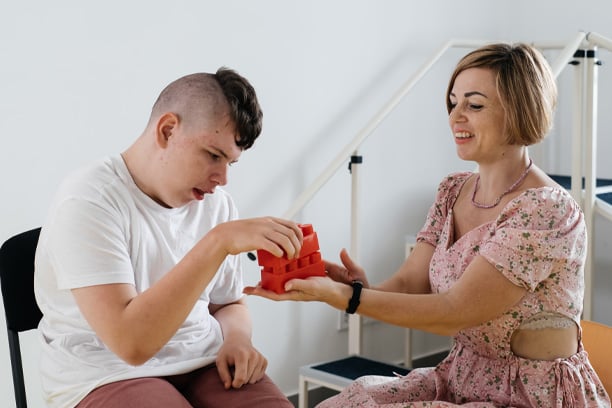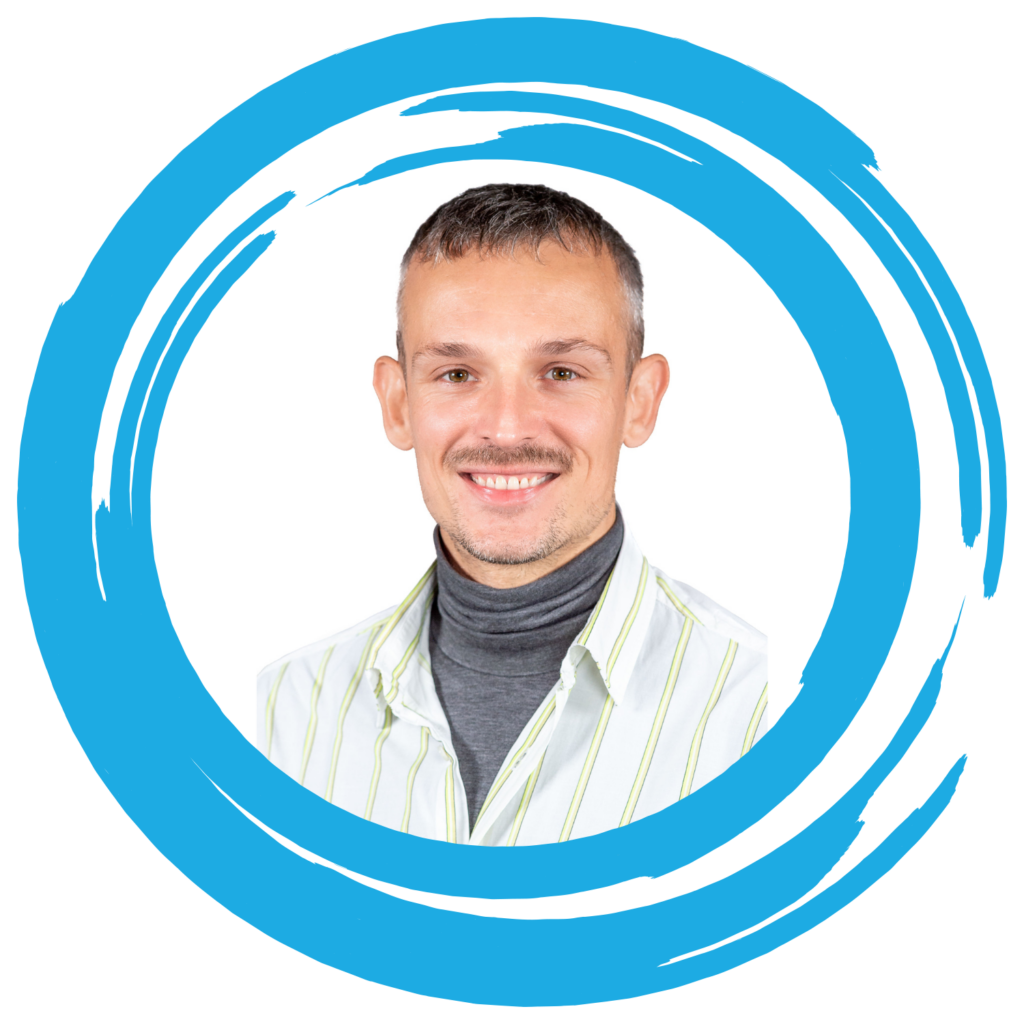Complex and Medical Needs
How Can a Tutor Help My Child with Complex and Medical Needs?
It goes without saying that physical disabilities or long-term health conditions can affect all aspects of a child’s life including their ability to learn or participate in school. Where a young person has two or more conditions – for example, autism plus mobility issues – they are described as having ‘complex needs’.
Whatever a child’s issues may be, their medical care is the responsibility of the NHS while their educational requirements have to be met by their local authority. As with all children, youngsters with complex needs are individuals with their own set of difficulties and strengths. Any health professionals or teaching staff working with them will need to take time and care to find out what these are in order to fully support them.
Many children with complex needs face challenges with speech and communication, hearing or sight, which requires highly specialised help. Some children with complex needs may have cerebral palsy or suffered a brain injury.


"I would definitely recommend SENsational tutors. My youngest daughter has 18q deletion syndrome and a complex set of challenges including difficulty speaking / communicating. Her tutor, Amy has been brilliant. Experienced and unphased by the challenges, she has been creative in her approach, developed a trusting relationship with our daughter and been great at getting her to focus and stretch herself. So happy we found her!"
Lauren, B’s mum, London
Cerebral palsy is a condition which affects a person’s muscle control and co-ordination. It’s generally caused by an injury to the brain which occurs during or shortly after birth and according to the charity Scope, it affects one in 400 people in the UK. It can also go along with other health issues such as epilepsy, problems with feeding, behavioural issues or learning difficulties.
It’s often very obvious when a person has CP as their movements may be stiff, jerky or uncoordinated and their speech may be slurred. It can also affect their fine motor skills, making smaller tasks such as doing up a button or handwriting, tricky.
Children can be born with hearing difficulties, affecting one or both ears, or they can develop over time due to injury or illness. They can be profoundly deaf – meaning they cannot detect any sound at all – or be moderately or mildly impaired, perhaps struggling only with certain sounds or frequencies.
These difficulties can be ‘conductive’ – meaning sound doesn’t travel from the outer to the inner ear, perhaps due to blockage or structural damage to the eardrum or bones of the inner ear. Alternatively, it may be ‘sensorineural’ impairment – due to damage to the auditory nerve, the cochlea or the brain. If it’s both, the difficulties are classified as ‘mixed’.
Naturally, auditory problems can have an enormous effect on a person’s education and social life, though hearing aids, implants, sign-language and lip reading are helpful for some people. Even so, it’s important for parents and teachers to recognise that a child with hearing difficulties will be working extra hard to comprehend the world around them, which can lead to exhaustion and frustration.
Carers can make life easier for hearing-impaired kids, experts say, with a few, simple strategies such as using pictures to aid communication and making sure a child has a clear view of your face as you speak.
Similarly, children with visual impairments or sight-loss may be born that way or acquire this over time due to brain damage, injury or illnesses. Common difficulties, such as short or longsightedness, are easily corrected with glasses or contact lenses but more complex medical conditions – of which there are many – can mean a young person will never have good eyesight. In this instance, audio materials or Braille (a system of raised dots which represent the alphabet) can help some kids access learning.
Visual difficulties can also be an integral part of other conditions. Dyslexic people, for example, often have ‘convergence’ problems, meaning that each eye is focusing on a different letter. In extreme cases, a page of writing can appear to jiggle about.
As part of a profile of complex needs, however, problems with hearing or sight occur alongside other conditions, meaning children may also be struggling with other neurological or sensory challenges, physical disabilities or learning difficulties.
Some people have both visual and auditory difficulties – often referred to as ‘deafblindness’ or ‘multi-sensory impairment’. According to the experts, most deafblind people have at least some level of vision and hearing though again, it varies according to each individual. Often, they point out, deafblindness is connected to the way someone’s brain processes what they see and hear, rather than a malfunction in the eyes or ears themselves. As with other sensory impairments, people can be born with these problems or acquire them later in life.
As the most complex organ in the body, the brain controls everything – from physical movement and bodily processes to behaviour, thoughts and memory. Where someone’s brain has been damaged due to a physical accident or an illness such as meningitis or a stroke, it can have a massive effect on all aspects of their life. A person with acquired brain injury (ABI) will have an individual profile of difficulties, depending on the areas of the brain that have been affected and the extent of the impairment.
Although it’s usually easy to see where an adult with ABI is struggling, it often takes longer for the effects of brain damage to fully manifest in children. According to the charity the Child Brain Injury Trust, the full extent of a child’s challenges may not be clear until adolescence or early adulthood as the young person develops and matures.
Many of the behavioural difficulties caused by ABI, they say, are similar to those faced by kids with other kinds of special needs. For example, a child with brain injury may have problems with impulsivity, mood-regulation and executive skills or take longer to process information and complete tasks.
Educationalists agree that pupils with complex needs need experienced and dedicated teachers who are willing to look beyond the disabilities to the person beneath. Children with complex needs are more likely to engage in learning, they say, if it focuses on topics of interest. A sensitive teacher will get to know the signs that the student is engaged which may be as subtle as a smile, an eye-movement or uttering a brief sound.
Useful contacts
The charity Sense offers support and advice to families of children with complex needs including deafblindness and brain injury – www.sense.org.uk
Contact the Royal National Institute for the Blind at www.rnib.org.uk
Contact the Royal National Institute for the Deaf at – www.rnid.org.uk
Contact the National Deaf Children’s Society at – www.ndcs.org.uk
The Child Brain Injury Trust provides information, training, advice and counselling for families and professionals.
Contact them at www.childbraininjurytrust.org.uk
"My client is a 20-year-old female with an acquired brain injury, epilepsy and learning disability. The tutor was able to keep her engaged with all activities so easily and just put the parents mind at rest. They are always passing comments like "if only we could find another tutor like "J" she is fantastic!!". We would love to have her full-time."
Sabrina, Case Manager, Warwickshire
Tutor Spotlight

Phil is a qualified teacher and professional tutor with extensive experience in working 1:1 with young people with Special Educational Needs, including complex and medical needs. He believes that teaching and learning can be tailored to meet the needs and preferences of any young person.
Phil’s experience working with children with complex and medical needs:
“I have worked with several young people and their families over a number of years with both complex and medical needs including: autism spectrum disorder (ASD), pathological demand avoidance (PDA), attention deficit and hyperactivity disorder (ADHD), obsessive compulsive disorder (OCD), speech and language difficulties, dyslexia, dyscalculia, dyspraxia, global developmental delay (GDD), and foetal alcohol syndrome (FAS), as well as a range of SEMH needs such as anxiety, depression and school trauma.”
Phil’s shares his approach when working with children with complex and medical needs:
“Building a solid foundation of trust and a sense of partnership is fundamental when working with young people with complex and medical needs; this takes time and patience. I begin by having a clear understanding of each need and how this affects their daily life, relationships with others and attitudes to learning. This involves carefully reading EHCPs and other relevant documentation, and chatting to parents and other professionals as well as the young person themselves.
I always set out to work in partnership with the young person, rather than imposing traditional methods of teaching and learning, such as ‘we must sit at a desk’, unless this is how the young person wishes to learn. Creating a partnership involves taking time to get to know the young person and finding out about their interests and what they want to get out of your sessions and life in general. It is important to let the young person take the lead and support them by providing relevant opportunities for learning based on their preferences.
Finally, I find it useful for both myself and the young people I work with to enter each session having no expectations for what you want them to achieve in the session, but rather to see successes in even the smallest things and build from there.”
Phil’s top tip for parents/carers with children with complex and medical needs:
“Getting the right support for your child is always an uphill struggle, but you are not alone. Many parents are facing the same issues as you and support and really useful ‘insider’ information and advice can be found in online forums and groups. Try to take a step back and appreciate what a great job you are doing.”
Sarah is an SEN Tutor with wide-ranging experience in a number of settings up to Senior Management Level in one of the largest Special Needs Schools in Europe. She has worked with pretty much every SEN imaginable and enjoys building a solid and secure rapport with her clients in order to make real and sustained progress.
As a teacher, leader and tutor she has also worked with a number of children and adults with a wide variety of medical needs. Having initially trained as a Clinical Dietitian she gained clinical experience in hospitals in Ireland and the UK and it is so wonderful that she has been able to use her knowledge in the Education Sector.

Sarah reflects on her experience working with students with complex and medical needs:
“I really enjoy working with those who have encountered challenges in their lives; particularly in terms of SEN and medical needs. It is a privilege to work with those who require a tailor-made and targeted approach. My time working in the large special needs school equipped me with a wealth of experience in working with kids with medical needs such as genetic abnormalities, cancer, epilepsy, visually and auditory impairments, speech and language challenges, neurological conditions, tourette’s syndrome, cerebral palsy and a vast range of mobility and sensory difficulties”.
Despite every client being completely individual, Sarah applies herself in a practical manner to help ensure her students receive the best possible support. When working with clients, she follows the following steps:
1) I find out as much as possible about the client-from family (sometimes friends) and all professionals who work with the client. It is a very holistic approach.
2) I get to know the client and establish a rapport in a personalised and warm manner.
3) I ensure that all strategies and interventions that will facilitate the client will be put in place.
4) I work at the client’s individual pace whilst empowering independence, engagement and progress.
5) We smile and have some fun!!
Working with students with global developmental delay (GDD)

Becky is a qualified SENCo and has experience of leading SEND in schools as well as working in private consultancy. She gained a first-class honours degree in Primary Teacher Education and has taught children with SEND in all primary age groups.
Becky explains the approach that she applies when working with children with global developmental delay (GDD):
- Establishing an honest, trusting relationship is essential when working with children with GDD and their families.
- Taking time to understand the history is very important. Through discussion and assessment, I gain an understanding of the priority areas for teaching and plan towards mastering the next achievable steps. These will often correspond to the smaller steps set out in the EHCP outcomes.
- Children with GDD are unique individuals and I aim to incorporate self-selected topics where possible because this is often highly motivating. Generally speaking, children with GDD benefit from explicit teaching of discrete skills which have been broken down into small, manageable chunks.
- Visual resources can be of great benefit, as can sound – through use of appropriate technology.
- Once a new concept has been taught, children with GDD will need very high levels of repetition and targeted questioning to consolidate this knowledge.
Becky adds that, “the complete focus that I bring as a 1:1 tutor has had lasting effects on the progress of children with GDD, and I believe that bespoke lessons offer the best opportunity for children with GDD to flourish and succeed.”




